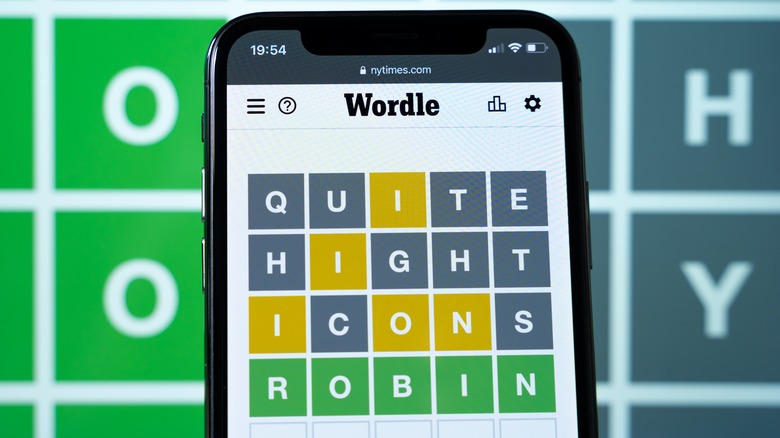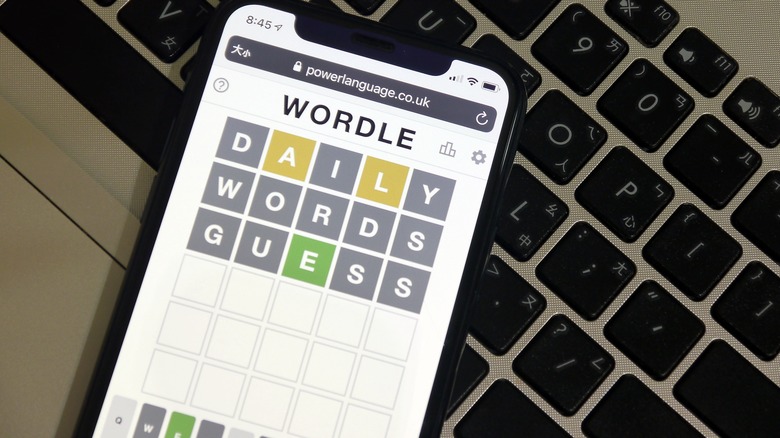Today's Wordle Answer #375 - June 29, 2022 Word Solution And Hints
The Wordle puzzle for June 29 presents an interesting mix of letters that, when combined in the right order, don't often make an appearance during casual conversations in English, though the word is hard to miss if you've ever come across it. Additionally, modern English has only four or five words with a similar phonetic syllable structure that rhyme with it directly, which makes it even easier to spot.
The solution to Wordle #375 has an "a" in the second position and both of the semi-vowels that the English language has to offer. The word is used to describe a person who doesn't quite conform to socially normal behavior and is often described as awkward and clumsy. However, more than just social chatter, the word can also be used to describe the specific way a person or object moves — someone or something that lacks poise, grace, and dexterity, making them inelegant or bumbling. The solution word can also be used as a substitute for the more sophisticated term that we know as gauche.
That was an awkward one
If you haven't figured out the solution yet, the answer to the latest Wordle puzzle is gawky. It traces its roots to the French word gauche, which can either mean left or awkward. Despite how the word is spelled, gawky isn't a direct etymological derivative of the word gawk, which means staring at something without any reservations or trying to hide it.
Interestingly, if one were to write a poem with lines that end with the word gawky, the only direct rhyming words available would be pawky and mawky, neither of which are commonly used in day-to-day English conversations. Needless to say, if you're in a poetic mood, steer clear of this word and frame the rhyming structure around something else to avoid a linguistic nightmare.
American poet Wallace Stevens used the word in his poem titled "No Possum, No Sop, No Tatters." Here's how the lines go: "It is deep January. The sky is hard. The stalks are firmly rooted in ice. It is in this solitude, a syllable, out of these gawky flitterings, intones its single emptiness, the savagest hollow of winter-sound." You can read a commentary on the poem here.

